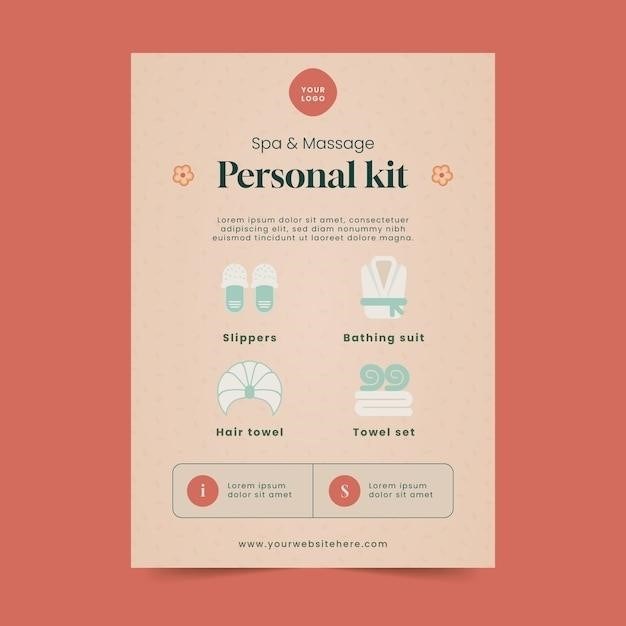Resume Database⁚ A Comprehensive Guide
A resume database is a collection of resumes from job seekers‚ organized and searchable by employers. It’s a valuable tool for both employers and job seekers. Employers can use resume databases to find qualified candidates for their open positions‚ while job seekers can use them to find jobs that match their skills and experience. This guide will provide a comprehensive overview of resume databases‚ including their benefits‚ types‚ and how to use them effectively.
Introduction
In the contemporary job market‚ where competition for desirable positions is fierce‚ having a well-crafted resume is paramount. A compelling resume acts as your first impression‚ showcasing your skills and experience to potential employers. However‚ crafting a resume that stands out from the crowd and effectively communicates your qualifications can be a daunting task. Fortunately‚ numerous resources are available to assist job seekers in creating professional and impactful resumes. This guide delves into the world of resume databases‚ exploring their functionalities‚ benefits‚ and how they can be leveraged to streamline the job search process. We will examine the different types of resume databases‚ from free to paid options‚ and provide valuable tips on optimizing your resume for search engines and recruiters.
Furthermore‚ we will discuss the importance of utilizing resume templates and samples as a starting point for building your own unique resume. By understanding the intricacies of resume databases‚ job seekers can significantly enhance their job search efforts and increase their chances of landing their dream job. This guide aims to equip you with the knowledge and tools necessary to navigate the world of resume databases effectively‚ allowing you to present yourself as a highly qualified and desirable candidate.
What is a Resume Database?
A resume database is essentially a digital repository where employers can search and access resumes from job seekers. It’s a vast collection of resumes organized and categorized based on various factors‚ such as industry‚ skills‚ experience‚ and location. Imagine it as a massive online library of resumes‚ readily available for employers to browse and select potential candidates. These databases are often used by recruitment agencies‚ staffing companies‚ and individual employers looking to fill open positions. They can either be free or paid‚ offering varying levels of access and features.
The primary purpose of a resume database is to facilitate the hiring process by connecting employers with qualified candidates. By utilizing search filters and keywords‚ employers can quickly narrow down their search and identify individuals who possess the specific skills and experience required for the job. This allows them to save time and resources‚ ensuring that they are only reviewing resumes from relevant candidates.
Resume databases have become an integral part of the modern job search process‚ providing both employers and job seekers with a valuable platform for connecting and achieving their career goals.
Benefits of Using a Resume Database
Resume databases offer a multitude of benefits for both employers and job seekers‚ streamlining the hiring process and increasing the chances of finding the perfect match. For employers‚ resume databases provide a centralized platform to access a vast pool of potential candidates‚ saving time and effort compared to traditional methods like newspaper ads or job boards. They enable employers to efficiently filter resumes based on specific criteria‚ such as experience‚ skills‚ location‚ and education‚ ensuring that only relevant candidates are considered. This targeted approach allows employers to focus their attention on the most suitable applicants‚ ultimately leading to a more effective and efficient hiring process.
For job seekers‚ resume databases offer a convenient way to showcase their skills and experience to a wider audience. By uploading their resume to a database‚ they increase their visibility to potential employers‚ expanding their job search reach beyond traditional job boards. Furthermore‚ resume databases often provide valuable insights into the job market and industry trends‚ allowing job seekers to tailor their resumes and cover letters to specific job requirements. This personalized approach can significantly enhance their chances of securing an interview.
In essence‚ resume databases act as a bridge between employers and job seekers‚ facilitating a seamless and efficient hiring process that benefits both parties.
Types of Resume Databases
Resume databases come in various forms‚ each catering to specific needs and target audiences. The most common types include⁚
- General Job Boards⁚ These platforms‚ such as Indeed‚ Monster‚ and CareerBuilder‚ house vast resume databases encompassing a wide range of industries and professions. They typically allow both employers and job seekers to create free accounts‚ providing access to a broad pool of potential candidates. General job boards are particularly useful for those seeking entry-level or mid-level positions across diverse fields.
- Industry-Specific Databases⁚ Some resume databases are tailored to specific industries‚ such as healthcare‚ technology‚ or finance. These platforms attract highly specialized professionals and provide employers with a targeted pool of candidates possessing industry-relevant skills and experience. Industry-specific databases are particularly beneficial for companies seeking niche talent or filling highly specialized roles.
- Professional Networking Sites⁚ LinkedIn‚ a popular professional networking site‚ serves as a valuable resume database for professionals. Users create detailed profiles that highlight their skills‚ experience‚ and connections‚ allowing recruiters and employers to search and connect with potential candidates. LinkedIn is particularly effective for those seeking senior-level or executive positions‚ as it allows for targeted outreach and networking opportunities.
- Company-Specific Databases⁚ Some companies maintain their own internal resume databases‚ allowing them to store and search resumes from potential candidates who have applied for previous positions or expressed interest in the company. This approach enables companies to efficiently track applicants and revisit their applications for future openings.
The choice of resume database depends on individual needs and goals. Whether seeking general employment opportunities or specialized roles‚ understanding the different types available can help make informed decisions and maximize job search efforts.
Free Resume Databases
Free resume databases offer a valuable resource for both job seekers and employers. While they may not offer the same level of advanced search features or candidate pool as paid databases‚ they provide a cost-effective way to connect with potential talent. Here are some popular free resume database sites⁚
- Indeed⁚ One of the largest job search engines‚ Indeed boasts a vast resume database accessible to employers. It allows for basic search filters‚ including keywords‚ location‚ and job title. While Indeed primarily focuses on job postings‚ employers can access resumes of candidates who have applied for positions on the platform.
- Monster⁚ Another prominent job board‚ Monster offers a free resume search feature that allows employers to browse through a database of millions of resumes. It provides basic search functionalities based on keywords‚ location‚ and experience level.
- CareerBuilder⁚ Similar to Indeed and Monster‚ CareerBuilder maintains a free resume database accessible to employers. It offers search capabilities based on keywords‚ job title‚ and location‚ allowing employers to identify potential candidates.
- Glassdoor⁚ While primarily known for company reviews and salary information‚ Glassdoor also provides a free resume search feature. Employers can access resumes of candidates who have applied for positions on the platform or created profiles on Glassdoor.
- LinkedIn⁚ While not strictly a resume database‚ LinkedIn’s vast network of professionals allows employers to search for candidates based on their skills‚ experience‚ and connections. By leveraging LinkedIn’s search functionalities‚ employers can identify and connect with potential candidates for various roles.
Free resume databases provide a valuable starting point for both job seekers and employers‚ offering a cost-effective way to connect and explore opportunities.
Paid Resume Databases
Paid resume databases offer a more comprehensive and advanced approach to talent acquisition‚ providing employers with access to a wider pool of candidates and enhanced search functionalities. These databases often feature advanced filtering options‚ allowing employers to target specific skills‚ experience levels‚ and qualifications. Here are some notable paid resume databases⁚
- ZipRecruiter⁚ ZipRecruiter offers a paid subscription service that provides access to a vast resume database with advanced search capabilities. Employers can utilize filters based on keywords‚ location‚ experience level‚ and industry‚ allowing for precise candidate targeting. ZipRecruiter also offers features like candidate sourcing and automated communication tools.
- Dice⁚ Specializing in tech talent‚ Dice offers a paid subscription service that grants access to a database of resumes from tech professionals. Employers can leverage Dice’s advanced search filters to find candidates with specific technical skills‚ experience levels‚ and certifications. Dice also offers features like job posting‚ candidate sourcing‚ and talent assessment tools.
- SignalHire⁚ SignalHire focuses on providing access to a curated database of resumes from professionals in various industries. It offers advanced search filters based on keywords‚ location‚ experience level‚ and social media profiles. SignalHire also provides features like candidate sourcing‚ contact information extraction‚ and real-time updates on candidate availability.
- Randstad⁚ A global staffing and recruitment agency‚ Randstad offers a paid subscription service that provides access to a large database of resumes from various industries. Employers can utilize Randstad’s advanced search filters to find candidates with specific skills‚ experience levels‚ and qualifications. Randstad also provides features like candidate sourcing‚ background checks‚ and onboarding support.
Paid resume databases offer a more robust and refined approach to talent acquisition‚ empowering employers to efficiently identify and connect with qualified candidates who meet their specific requirements.
Tips for Searching Resume Databases
Effectively navigating resume databases requires a strategic approach to maximize your chances of finding the ideal candidates. Here are some valuable tips to optimize your search process⁚
- Use specific keywords⁚ Instead of generic terms‚ employ specific keywords related to the skills‚ experience‚ and qualifications you seek. For instance‚ instead of “marketing‚” use “digital marketing” or “social media marketing.” This helps refine your search and identify candidates with the precise expertise you need.
- Target relevant locations⁚ Specify the desired location for the role. This narrows down your search to candidates residing in or willing to relocate to the designated area. Utilize location filters to refine your search results and avoid irrelevant candidates.
- Filter by experience level⁚ Use experience level filters to target candidates with the appropriate amount of professional experience. This eliminates the need to review resumes from individuals who may not meet your minimum experience requirements.
- Leverage advanced search options⁚ Explore the advanced search functionalities offered by the resume database. These features may allow you to filter by industry‚ education level‚ salary expectations‚ and specific skills‚ further refining your search results and streamlining the process.
- Save searches and receive alerts⁚ Save your specific search criteria to easily revisit them later. Set up alerts to be notified when new resumes matching your search criteria are added to the database‚ ensuring you stay updated on potential candidates.

By implementing these tips‚ you can enhance your search efficiency and focus your efforts on identifying the most qualified candidates for your open positions.
Using Resume Templates
Resume templates offer a structured framework to guide your resume creation‚ ensuring a professional and visually appealing presentation. They provide a pre-designed layout with designated sections for key information‚ such as your contact details‚ work experience‚ education‚ and skills. Utilizing a resume template can significantly simplify the process of creating a professional resume‚ even for individuals with limited design experience.
There are numerous online resources available for free resume templates‚ offering a wide range of styles and designs to suit different career fields and preferences. These templates often come in various file formats‚ including PDF‚ Word‚ and Google Docs‚ allowing you to choose the most convenient option for your needs. Many platforms also offer customizable templates‚ allowing you to personalize the layout‚ fonts‚ and colors to reflect your individual style and preferences.
When selecting a resume template‚ consider its relevance to your industry and the specific position you’re applying for. Choose a template that is clean‚ easy to read‚ and highlights your key skills and experience. A well-chosen template can make your resume stand out from the competition and create a positive first impression on potential employers.
Creating a Professional Resume
A well-crafted resume is your primary tool for showcasing your skills‚ experience‚ and qualifications to potential employers. It serves as a concise summary of your professional journey‚ highlighting your achievements and demonstrating your suitability for the desired role. Creating a professional resume requires careful attention to detail‚ a clear understanding of your target audience‚ and a strategic approach to presenting your information effectively.
Start by selecting a professional and easy-to-read font‚ such as Arial‚ Times New Roman‚ or Calibri‚ and maintain consistency throughout the document. Organize your content logically‚ typically in a reverse chronological order‚ prioritizing your most relevant experience. Use bullet points to present your accomplishments and responsibilities‚ quantifying your achievements whenever possible. For example‚ instead of stating “managed a team‚” specify “managed a team of 10 employees‚ resulting in a 15% increase in sales.”
Tailor your resume to each job application‚ highlighting skills and experiences that align with the specific requirements of the position. Proofread your resume meticulously for any grammatical or spelling errors‚ as these can create a negative impression on potential employers. A professional resume demonstrates your attention to detail and commitment to quality‚ making you a more attractive candidate in the job market.
Tips for Optimizing Your Resume for Search
In today’s digital age‚ your resume is often the first impression you make on a potential employer. With the rise of Applicant Tracking Systems (ATS)‚ it’s crucial to optimize your resume for search engines to ensure it gets noticed. ATS software scans resumes for keywords and phrases relevant to the job description‚ so incorporating these terms strategically is essential for your resume to pass the initial screening process.
Start by carefully analyzing the job description and identifying key skills‚ qualifications‚ and responsibilities. Incorporate these keywords throughout your resume‚ using them naturally within the context of your experience and accomplishments. For example‚ instead of simply stating “experience in marketing‚” elaborate with specific examples like “developed and executed successful marketing campaigns‚ resulting in a 20% increase in website traffic.”
Use a consistent format‚ such as a chronological or functional resume style‚ and avoid using any unusual fonts or formatting that might interfere with the ATS scan. Ensure your resume is saved as a PDF file to maintain its formatting and prevent any potential errors when it’s viewed on different devices. By following these tips‚ you can optimize your resume for search and increase your chances of getting noticed by potential employers.
Resume Database for Employers
Resume databases are invaluable resources for employers seeking to streamline the hiring process and find qualified candidates quickly. They provide access to a vast pool of talent‚ allowing employers to search for candidates based on specific criteria like skills‚ experience‚ location‚ and industry. These databases offer a convenient way to identify potential candidates‚ saving employers time and effort in the initial screening process.
Many resume databases offer advanced search filters and tools‚ enabling employers to refine their searches and target specific profiles. Some platforms also provide features like candidate matching algorithms that analyze resumes and job descriptions to recommend the most suitable candidates. Employers can leverage these resources to efficiently identify potential hires who align with their specific needs and requirements.
Beyond the initial candidate search‚ resume databases often provide additional functionalities‚ such as candidate communication tools‚ scheduling features‚ and background checks. These features streamline the hiring process‚ facilitating communication with candidates‚ scheduling interviews‚ and conducting background checks. By utilizing resume databases‚ employers can expedite the hiring process and enhance their overall recruiting efficiency.



